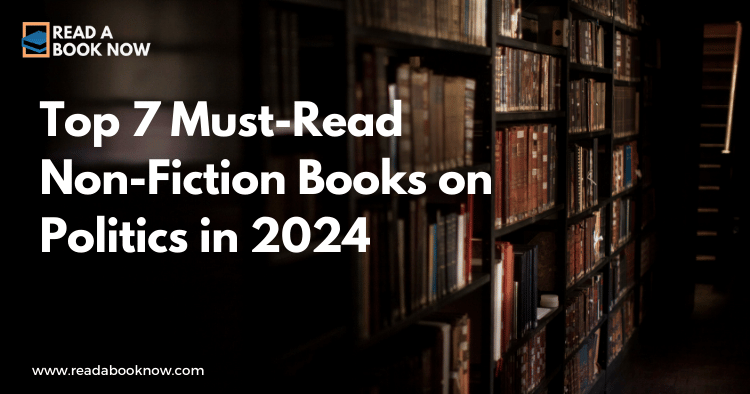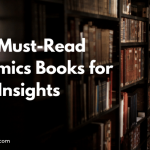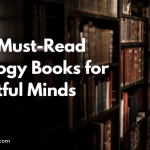Table of Contents
- Introduction
- 1. “The Politics of Belonging” by Ayesha Hazarika
- 2. “Twilight of Democracy: The Seductive Lure of Authoritarianism” by Anne Applebaum
- 3. “The New Political Economy of the South” by K. Sabeel Rahman
- 4. “How to Avoid a Climate Disaster” by Bill Gates
- 5. “On Tyranny: Twenty Lessons from the Twentieth Century” by Timothy Snyder
- 6. “The Righteous Mind: Why Good People Are Divided by Politics and Religion” by Jonathan Haidt
- 7. “Why We’re Polarized” by Ezra Klein
- Conclusion
Introduction
In an era marked by rapid change and heightened political tensions, understanding the dynamics of power, governance, and civic responsibility is more crucial than ever. As we step into 2024, a selection of non-fiction books can shed light on the complexities of politics, providing readers with insights that resonate in today’s world. Whether you’re a seasoned political enthusiast or just beginning your journey into political literature, these seven must-read titles will offer valuable perspectives on the pressing issues of our time.
1. “The Politics of Belonging” by Ayesha Hazarika
In “The Politics of Belonging,” Ayesha Hazarika explores the emotional and psychological aspects of political identity. This book delves into the ways in which belonging shapes political behavior and voter sentiment, particularly in a world increasingly divided by nationalism and populism. Hazarika, a former political advisor, draws from her experiences in British politics to illustrate how feelings of inclusion or exclusion can influence electoral outcomes.
Key Themes:
- The role of identity in politics
- Emotional narratives in political campaigns
- Strategies for fostering inclusive political discourse
For further exploration of belonging in literature, consider the insights shared in Top 10 Must-Read 18th Century Classics.
2. “Twilight of Democracy: The Seductive Lure of Authoritarianism” by Anne Applebaum
Pulitzer Prize-winning journalist Anne Applebaum examines the resurgence of authoritarianism in “Twilight of Democracy.” Through personal anecdotes and historical analysis, Applebaum argues that the allure of authoritarian regimes is not merely a response to economic hardship but also a reaction to disillusionment with liberal democracy. This book serves as a crucial warning about the fragility of democratic institutions.
Key Themes:
- The psychology behind authoritarianism
- Case studies from various countries
- The importance of defending democratic values
Explore more about the rise of authoritarianism in literature through 10 Must-Read African Classics That Changed Literature Forever.
3. “The New Political Economy of the South” by K. Sabeel Rahman
K. Sabeel Rahman’s “The New Political Economy of the South” offers a fresh perspective on the intersection of economics and politics, focusing on the Global South’s unique challenges and opportunities. Rahman argues that understanding these dynamics is essential for developing effective policies that promote equity and sustainability.
Key Themes:
- Economic inequality and political power
- The role of grassroots movements
- Policy recommendations for sustainable growth
For further insights into economic disparity in literature, check out 10 Timeless Latin American Classics That Enrich Your Library.
4. “How to Avoid a Climate Disaster” by Bill Gates
Bill Gates’ “How to Avoid a Climate Disaster” is a must-read for anyone concerned about environmental policy and its political implications. Gates lays out a comprehensive plan to address climate change, emphasizing the need for innovation and collaboration between governments, businesses, and individuals. This book not only discusses the science behind climate change but also the political will necessary to enact meaningful change.
Key Themes:
- The role of technology in combating climate change
- Policy frameworks for sustainable development
- Global cooperation in environmental efforts
To learn more about global cooperation, you might find the themes in 10 Must-Read Feminist Classics That Changed Literature insightful.
5. “On Tyranny: Twenty Lessons from the Twentieth Century” by Timothy Snyder
Timothy Snyder’s “On Tyranny” serves as both a historical reflection and a contemporary guide for resisting authoritarianism. Drawing lessons from the 20th century, Snyder outlines twenty practical steps individuals can take to safeguard democracy. His clear and concise writing makes this an accessible yet thought-provoking read.
Key Themes:
- Historical context of tyranny
- Individual responsibility in political engagement
- Practical steps for civic action
For more insights into the importance of individual agency, see Top 10 Must-Read 19th Century Classics For Every Book Lover.
6. “The Righteous Mind: Why Good People Are Divided by Politics and Religion” by Jonathan Haidt
In “The Righteous Mind,” social psychologist Jonathan Haidt explores the moral foundations of political division. Through engaging narratives and research-backed insights, Haidt illuminates why people with differing beliefs often view their perspectives as righteous and others as misguided. This book is essential for anyone looking to foster understanding across political divides.
Key Themes:
- Moral psychology and political ideology
- Strategies for constructive dialogue
- The importance of empathy in politics
For additional context on moral foundations in literature, consider exploring Top 10 Must-Read Russian Classics That Shaped Literature.
7. “Why We’re Polarized” by Ezra Klein
Ezra Klein’s “Why We’re Polarized” dissects the increasing polarization in American politics, examining its roots in culture, media, and identity. Klein provides a thorough analysis of how these factors contribute to a fragmented political landscape and offers potential pathways for bridging divides.
Key Themes:
- The impact of social media on political discourse
- Identity politics and its consequences
- Solutions for reducing polarization
For further reading on political polarization and its historical context, see Top 10 Must-Read Modern European Classics You Can’t Miss.
Conclusion
As we navigate the complexities of the political landscape in 2024, these seven non-fiction books offer invaluable insights and reflections on the pressing issues of our time. They encourage readers to engage with the political process, understand differing perspectives, and contribute to a more informed and inclusive society. Whether you read them for personal growth or to better understand the world around you, these titles promise to enrich your political literacy and inspire meaningful dialogue.
Happy reading!




